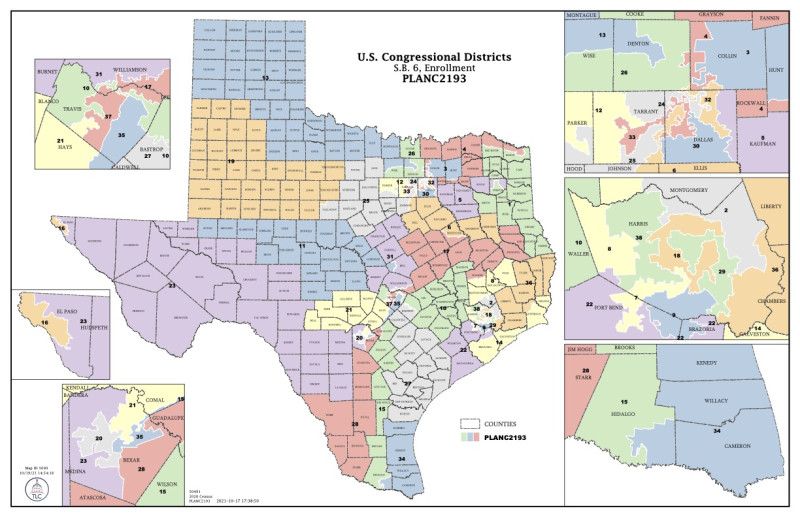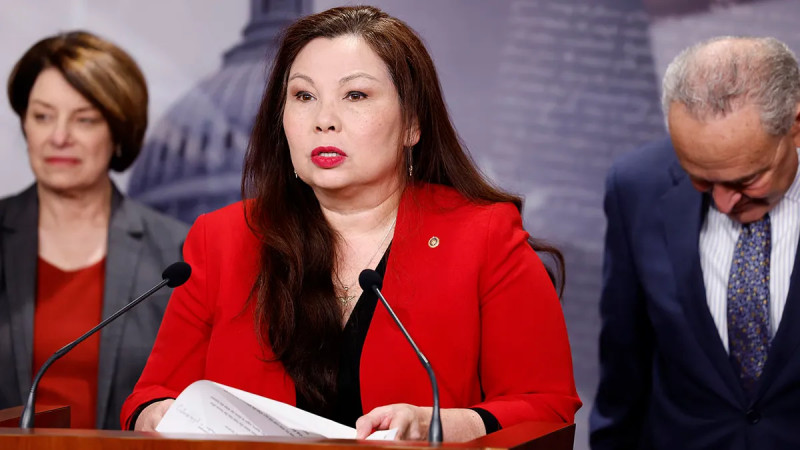The political landscape of Texas has been significantly reshaped with a federal court's recent decision to block the state's newly drawn congressional maps. This ruling, which was issued on November 18, 2025, has dealt a substantial blow to Republicans who had hoped to leverage the redistricting process to secure more seats in the U.S. House of Representatives for the 2026 midterm elections.
The new maps, which were designed to favor the Republican Party, were part of a mid-decade redistricting effort. This effort was initiated following pressure from President Donald Trump, who urged Republican lawmakers to redraw the maps ahead of the pivotal 2026 midterms. The proposed changes aimed to enhance Republican chances by potentially adding five more congressional seats to the party's tally.
The court's ruling was based on the determination that the new maps likely constitute an unconstitutional racial gerrymander. This decision came after a panel of three federal judges reviewed the case, concluding that the maps violated the Constitution. The majority opinion emphasized the necessity for the state to revert to its previous district boundaries, effectively nullifying the newly drawn maps for the upcoming election.
Critics of the new maps had long asserted that they were a form of racial gerrymandering, designed to dilute the voting power of minority communities. The federal court's decision underscores the legal and ethical challenges associated with redistricting processes that prioritize partisan gains over fair representation.
State Representative Matt Morgan (R-TX) and other Republican lawmakers had defended the new maps, arguing that they were crafted to improve Republican prospects in key districts. However, opponents maintained that the maps were a clear attempt at partisan manipulation, aimed at securing more seats for the Republican Party despite the concerns about fairness and representation.
The ruling by the federal court has far-reaching implications, not only for Texas but also for the broader national political landscape. The decision is a significant setback for the Republican Party, both within Texas and on a national scale, as it disrupts their strategic plans for the 2026 midterm elections. The court's intervention highlights the ongoing debate surrounding redistricting and the importance of maintaining fair and equitable electoral processes.
The ruling also comes at a time when other states, such as California, have been exploring redistricting initiatives that could potentially benefit the Democratic Party. California's recent initiative, which passed in November 2025, allows for redistricting that could help Democrats gain five additional seats in that state. This move contrasts sharply with the efforts in Texas, where the new maps were viewed as a partisan maneuver rather than a genuine effort at fair representation.
In conclusion, the federal court's decision to block Texas's new congressional maps for the 2026 midterms serves as a crucial reminder of the legal and ethical standards that must govern the redistricting process. The ruling underscores the need for fairness and transparency in electoral processes, ensuring that the interests of all voters, regardless of their political affiliation, are protected. As the political landscape continues to evolve, this decision will undoubtedly shape future debates and actions related to redistricting and gerrymandering in the United States.



